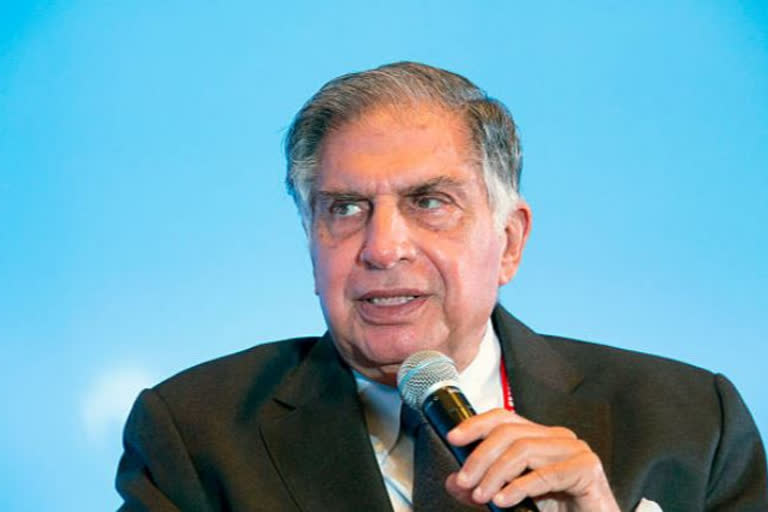New Delhi: The Income Tax Appellate Tribunal (ITAT) has upheld the tax-exempt status of three Tata Group trusts, quashing a revision order of the Income Tax Department that sought to cancel tax exemption on grounds that they held shares of Tata Sons.
It also censured former Tata Sons Chairman Cyrus Mistry for supplying documents to the tax department soon after his unceremonious exit as the head of the salt-to-software group.
The ITAT's Mumbai bench -- comprising its President Justice P P Bhatt and Vice President Pramod Kumar -- passed three separate orders on December 28, upholding the tax-exempt status of Ratan Tata Trust, JRD Tata Trust and Dorabji Tata Trust.
It said the March 2019 revision order of the Income Tax Department that sought to cancel tax exemption to the three trusts was "devoid of any legally sustainable merits".
The three trusts collectively hold about 66 per cent in Tata Sons - the holding company of Tata Group.
The commissioner of income tax (exemption) (CIT-E) had threatened to upend the decades-old ownership of Tata Sons by the trusts by alleging that such shareholdings are in violation of the income tax laws.
Tata Trusts had appealed to the tribunal, denying the claims of the CIT-E.
The ITAT also came down heavily on Mistry, who it said had indulged in "behaviour unheard of in the corporate world".
Mistry's act of supplying material to the Income Tax Department just weeks after his removal as chairman of Tata Sons and without authorisation from the company cannot be said to be influenced by "call of pure conscience and high grounds of morality", the tribunal observed.
It said the inputs from those engaged in a rivalry with an assessee should be taken with a reasonable degree of circumspection.
Mistry was removed as Tata Sons chairman in October 2016.
Read more: Sovereign Gold Bonds: Key benefits, eligibility and other details
ITAT said none of the trustees of the trusts had any substantial interest in Tata Sons and the investment in Tata Sons by the trust is not "for the purpose of investment in shares", but "undisputedly for the purpose of sharing the fruits of the success, of the Tata Group, for the benefit of the general public at large".
Since the investments by the trusts are in the nature of corpus, it will not make them ineligible for I-T exemption, it said.
The payments made by Tata Sons to trustees of these trusts were for their roles as its former directors and employees and has nothing to do with the benefits given to them, it said.
"The pension payments to Ratan N Tata and NA Soonawala, for example, have been held to be wholly and exclusively for the purposes of the business of Tata Sons Ltd, and, therefore, the stand that these payments amounted to benefit to the trustees is ex facie incorrect," it added.
On Mistry, the tribunal said the income tax department's revision order was based on documents provided by him eight weeks after his removal.
"The objectivity of the averments" made by Mistry, in such a situation is "extremely doubtful", it said.
"He was Chairman of Tata Sons Ltd since 2013 and its director since 2006, but apparently, knowing everything very well, he keeps quiet all along. Just as he is expelled from the office of the Chairman of Tata Sons, he gathers copies of the documents accessed by him in a fiduciary capacity and hands these documents over to the income tax department. This kind of conduct is unheard of in the civilised corporate world," it noted.
The income tax department had based its action on the premise that charitable trusts claiming tax-exempt status are prohibited from buying and selling shares and benefitting from such activity.
Loss of tax-exempt status and questions over its ownership structure would have disrupted the functioning of Tata Sons.
The ITAT order strengthens Tata Trusts' case against cancellation of its registrations by the tax department. This case is being heard by a separate bench in the ITAT.
The income tax department had cancelled the registrations of six Tata Trusts -- Jamsetji Tata Trust, RD Tata Trust, Tata Education Trust, Tata Social Welfare Trust, Sarvajanik Seva Trust and Navajbai Ratan Tata Trust -- in October 2019 after the Comptroller & Auditor General (CAG) and Public Accounts Committee of Parliament had pointed out that the department was losing revenue by allowing the trusts to continue with the tax-exempt status.
The six trusts had in March 2015 moved to surrender their registrations after accepting that some of their assets were not in accordance with the tax laws.
(PTI)



